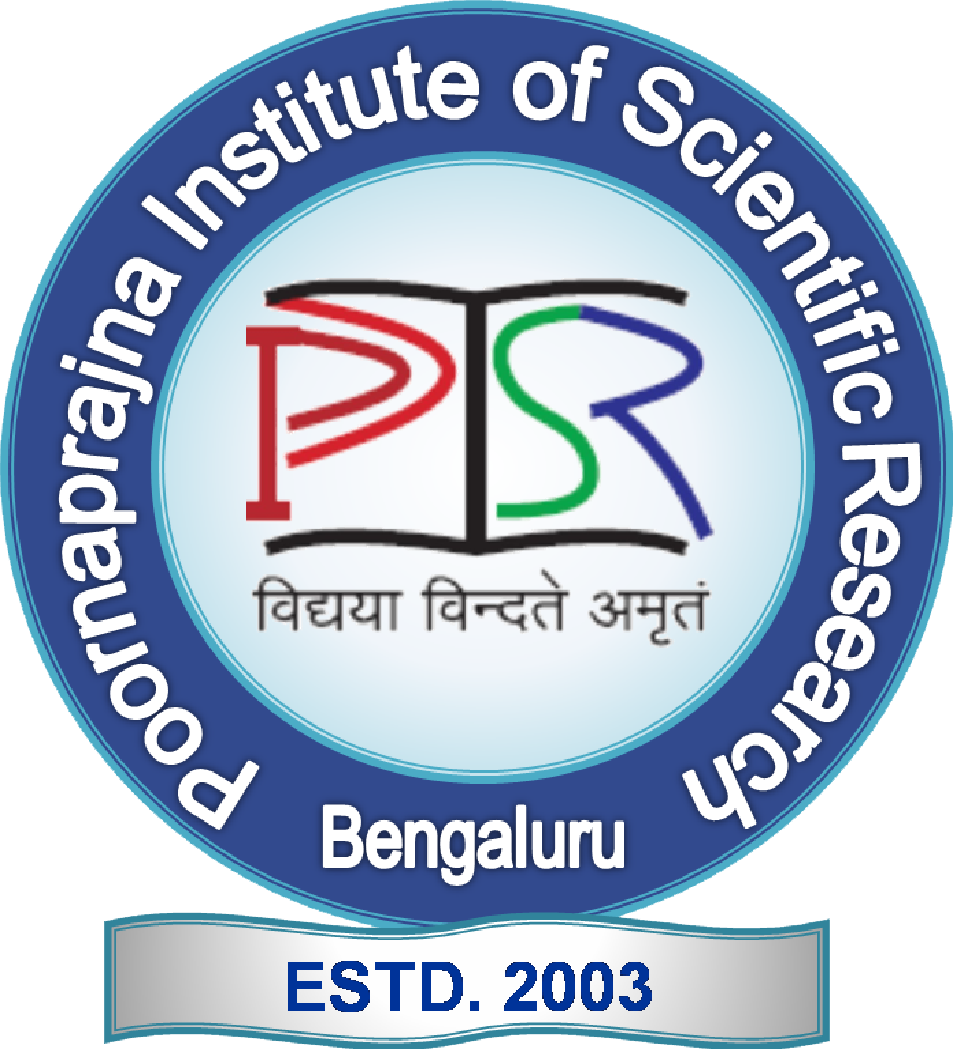
The main focus of our research group, "CO2BIOCAT," is involved in innovative and sustainable research focused on catalytic processes for the conversion of CO2, biogas, and biomass-derived compounds into valuable fuels and chemicals. Our research work aligns with the broader goal of achieving green and sustainable development by utilizing CO2 and biomass as carbon sources.
Research Interests:
1. Tandem catalysts for one step CO2 hydrogenation to Bio-LPG
Our research focus on developing tandem catalysts for the one-step CO2 hydrogenation to Bio-LPG is a commendable approach towards addressing the challenge of CO2 fixation into valuable fuels. The tandem catalyst strategy, combining multiple reactions over a single catalyst, is particularly interesting for the synthesis of Liquefied Petroleum Gas (LPG) from CO2 and hydrogen.
2. Biogas upgradation via CO2 methanation
Our research focus on biogas upgradation through CO2 methanation is indeed of great significance for both CO2 utilization and addressing energy shortages. The utilization of surplus renewable energy for water electrolysis to produce hydrogen, which is then used in CO2 methanation to convert CO2 to CH4, represents a sustainable and environmentally friendly approach. In summary, our research is focused on a holistic approach that combines renewable energy, CO2 utilization, and biogas upgradation to produce CH4-rich gases. This aligns with the broader goals of sustainability, reducing greenhouse gas emissions, and providing an alternative energy source.
3. Catalytic conversion of lignocellulosic biomass to ethylene glycol (EG)
Our research focus on the catalytic conversion of lignocellulosic biomass to ethylene glycol (EG) is crucial for advancing sustainable and environmentally friendly processes in the chemical industry. Ethylene glycol has widespread applications, and the transition from fossil feedstock to renewable sources like lignocellulosic biomass aligns with the goals of carbon neutrality and environmental sustainability.
4. C–O Hydrogenolysis of C3–C4 Polyols Selectively to Terminal Diols
Our emphasis on glycerol as a biomass-derived platform chemical and its conversion to value-added products is in line with the principles of a circular economy, emphasizing the sustainable use of resources. Glycerol, a by-product in oleochemical industries, holds significant potential for the production of valuable chemicals, particularly propanediols (PDOs). In particular, diols with terminal hydroxyl groups are of great interest because of their vast applications. 1,3-Propanediol (1,3-PDO) is used in the production of poly(trimethylene terephthalate) (PTT). On the other hand, erythritol is a C4 sugar molecule found in fruits, fermented foods, etc., and is widely used in cosmetics, artificial sweeteners and pharmaceuticals. 1,4-BDO is an important diol because of its extensive use in the synthesis of poly(butylene terephthalate) (PBT) polymer. A bifunctional, bimetallic catalyst can have synergistic interactions between the two metals which work in tandem to perform the surface-catalyzed reactions. Generally, a typical hydrogenolysis bifunctional catalyst consists of a noble metal and an acidic transition metal oxide.
5. Solid catalysts for conversion of furfural and its derivatives to alkanediols
Our focus on the production of alkanediols with five and six carbon atoms, specifically 1,2- and 1,5-pentanediols, as well as 1,2- and 1,6-hexanediols, from lignocellulosic biomass-derived furfural and its derivatives is a commendable effort toward sustainable and green chemistry. The use of solid catalysts adds to the environmentally friendly approach. Several bifunctional catalysts with metal (for hydrogenation/hydrogenolysis) and acid/base (for ring opening) functionalities have been reported. Effective and selective conversion of furfurals to a desired diol is still a challenge.
- N. Enjamuri, S. Nishikawa, M. Nishijima, S. Tada and R. Kikuchi. Highly Active and Durable Ru Promoted Ni/CeO2 Catalysts for CO2 Methanation Reaction. Korean Journal of Chemical Engineering, 2023 (Under revision)
- N. Enjamuri, S. Nishikawa, M. Nishijima, S. Tada and R. Kikuchi. The development of new catalyst specific to steam and CH4-containing CO2 methanation. (To be communicated)
- S. Bhowmik, N. Enjamuri, G. Sethia, V. Akuala, B. Marimuthu, and S. Darbha. Insights into active tungsten species on Pt/W/SBA-15 catalysts for selective hydrodeoxygenation of glycerol to 1, 3-propanediol. Molecular Catalysis, 2022, 531, 112704.
- N. Enjamuri and S. Darbha. Advances in catalytic conversion of lignocellulosic biomass to ethylene glycol. Catalysis Reviews, 2022, 1-71.
- S. Bhowmik, N. Enjamuri, B. Marimuthu, and S. Darbha. C–O Hydrogenolysis of C3–C4 Polyols Selectively to Terminal Diols over Pt/W/SBA-15 Catalysts. Catalysts, 2022, 12(9),1070.
- S. Bhowmik, N. Enjamuri and S. Darbha. Hydrogenolysis of glycerol in an aqueous medium over Pt/WO3/zirconium phosphate catalysts studied by 1H NMR spectroscopy. New Journal of Chemistry, 2021, 45, 5013-5022.
- N. Enjamuri and S. Darbha. Solid catalysts for conversion of furfural and its derivatives to alkanediols. Catalysis Reviews, 2020, 1-41.
- N. Enjamuri, S. Sarkar, B. M. Reddy and J. Mondal. Design and catalytic application of functional porous organic polymers: Opportunities and challenges. The Chemical Record, 2019, 19, 1782-1792.
- R. Kumar, N. Enjamuri, S. Shah, A. S. Al-Fatesh, J. J. B. Suarez and B. Chowdhury. Ketonization of oxygenated hydrocarbons on metal oxide based catalysts. Catalysis Today, 2018, 302, 16-49.
- N. Enjamuri, S. Hassan, A. Auroux, J. K. Pandey and B. Chowdhury. Nobel metal free, oxidant free, solvent free catalytic transformation of alcohol to aldehyde over ZnO-CeO2 mixed oxide catalyst. Applied Catalysis A: General, 2016, 523, 21- 30.
- R. Kumar, S. Ponnada, N. Enjamuri, J.K. Pandey and B. Chowdhury. Synthesis, characterization and correlation with the catalytic activity of efficient mesoporous niobia and mesoporous niobia–zirconia mixed oxide catalyst system. Catalysis Communications, 2016, 77, 42-46.
- R. Kumar, N. Enjamuri, J. K. Pandey, D. Sen, S. Mazumder, A. Bhaumik and B. Chowdhury. Bismuth supported SBA-15 catalyst for vapour phase Beckmann rearrangement reaction of cyclohexanone oxime to ɛ-caprolactam. Applied Catalysis A: General, 2015, 497, 51-57.
- S. Rahman, N. Enjamuri, R. Gomes, A.Bhaumik, D. Sen, S. Mazumder and B. Chowdhury. Aerobic Baeyer–Villiger oxidation of cyclic ketones over periodic mesoporous silica Cu/Fe/Ni/Co-HMS-X. Applied Catalysis A: General, 2015, 505, 515-523.
- A. A Dar, N. Enjamuri, Md. Shadab, N. Ali and A. T. Khan. Synthesis of unsymmetrical sulfides and their oxidation to sulfones to discover potent antileishmanial agents. ACS Combinatorial Science, 2015, 17(11), 671-681.
- “Tandem catalysts for CO2 conversion to value added fuels and chemicals” funded by NEDO, Japan
(Principle Investigator: Prof. Ryuji Kikuchi; Role: Postdoctoral Research Fellow; Duration: 2022-2024; status: completed). - “Selective catalytic hydrogenolysis of biomass-derived polyhydroxy compounds into diols” funded by CSIR, Govt. of India (Principle Investigator: Dr. Darbha Srinivas; Role: Research Associate; Duration: 2019-2022; status: completed).
- “Mesoporous mixed oxide supported gold nanoparticle for oxidant free dehydrogenation reaction” funded by DST, Govt. of India (Principle Investigator: Prof. Biswajit Chowdhury; Role: Doctoral fellow; Duration: 2013-2016; status: completed).
- 2024-Present: Assistant Professor, Materials Science and Catalysis, Poornaprajna Institute of Scientific Research (PPISR), Bengaluru, India.
- 2022-2023: Postdoctoral Research Fellow, Laboratory of Chemical System & Engineering, Hokkaido University, Sapporo, Japan.
- 2019-2022: Research Associate, Catalysis and Inorganic Chemistry Division, CSIR-National Chemical Laboratory Pune, Maharashtra, India.
- 2018-2019: Research Associate, Inorganic & Physical Chemistry Division, CSIR-Indian Institute of Chemical Technology, Tarnaka, Hyderabad, India.
- 2013-2018: Ph.D. Applied Chemistry, Indian Institute of Technology (Indian School of Mines), Dhanbad, Jharkhand, India.
- 2011-2013: M.Sc. Chemistry, Indian Institute of Technology Guwahati, Assam, India.
- New Energy and Industrial Technology Development Organization (NEDO), Postdoctoral research fellowship (2022-2023), Hokkaido University, Japan.
- CSIR- Bhatnagar Research Associate (RA) fellowship (2019-2022), CSIR-NCL Pune, Maharashtra, India.
- Department of Science and Technology (DST) doctoral fellowship (2013-2017), IIT(ISM) Dhanbad, Jharkhand, India.
- Recipient of Karma Jyoti-2017 award given for their commendable service for the indigent section of the society on occasion of 3rd International Day of Yoga, 21st June-2017, CSM, Indian Institute of Technology (Indian School of Mines), Dhanbad, Jharkhand, India.
- Hyderabad Central University (HCU)-2011, M.Sc. admission, Hyderabad, India (All India 19th Rank).
- Joint Admission Test (JAM)-2011, M.Sc. admission, Indian Institute of Technology (IIT), India (All India 575th Rank).
- National Cadet Corps (NCC) certificate ‘C’ examination in B grade held in 2009 under the authority of ministry of Defence, Government of India.
Currently CO2BIOCAT is actively looking for motivated postgraduates and Ph. D. students.
